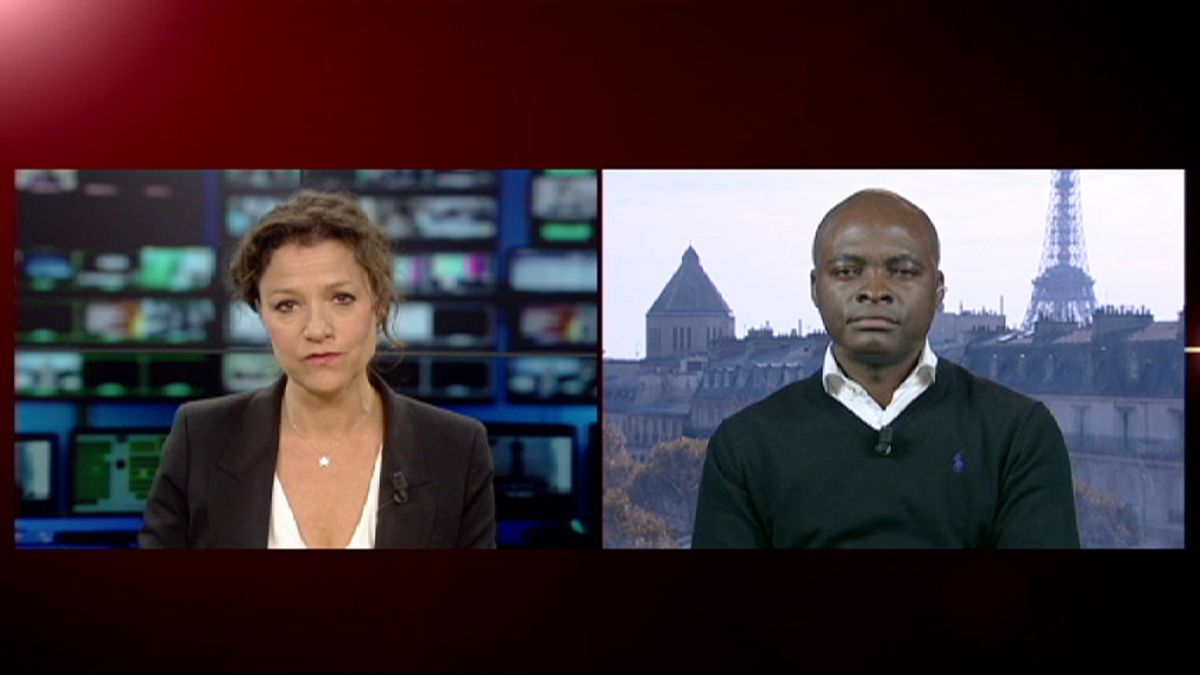Burkina Faso is the latest African nation to catch fire, even if here this is a rare event in a relatively peaceful corner of West Africa. A day of violence and total confusion has it seems left the people in command of the streets, and determined to fight for their constitutional rights in Burkina, the “Land of honest men”.
President Blaise Campaore, after 27 years in power, went too far and has resigned, perhaps surprised by the strength of public opinion the media gave him no inkling of. Giving in to the protesters’ demands was not enough. He had to go.
In 1983, Blaise Campaoré was a loyal lieutenant of Captain Thomas Sankara when he took power in a coup. Sankara was a revolutionary looking to cut dependency on France. He renamed Upper Volta Burkina Fasso and set out to make it self-sufficient. Campaoré argued with him and with covert backing from the west took over after Sankara was assassinated. Campaoré has always denied involvement.
Campaoré played the good dog and obeyed his former colonial masters in Paris, notably in La Baule in 1990 when alongside President François Mitterrand and facing a hall of African leaders, he said “there is no development without democracy, and there’s no democracy without development.”
As president he pressed ahead with democratic reforms, writing a new constitution, fostering multi-party politics, and free elections. This didn’t stop him from getting re-elected three times in a row with scores that would have raised an eyebrow in a dictatorship.
During this time the country has suffered. It is one the 10 least-developed nations in the world, and one of the poorest. Eighty percent of the population lives off agriculture, and more than 40 percent live in poverty.This has all been silently bottled up until recently.
Until now Campaoré had been popular. He was a patriarch, a “big man” but despite being tainted by formenting a coup and being friendly with some ambigious allies he was able to find a role on the world diplomatic stage. For the West he was the go-to guy when mediation was needed in regional conflicts, such as in Mali or Ivory Coast.
To find out more about the background to events, euronews spoke to Georges Dougueli, a journalist at French weekly “Jeune Afrique”
Sophie Desjardin, euronews
Georges Dougueli, youve been closely following events in Burkina Faso. The situation there seems confused and explosive.
We’ve seen scenes of angry people and destruction but not a brutal repression: is this normal in Africa? What can we understand about this country?
Georges Dougueli, journalist, Jeune Afrique
We knew very well that part of the army would not understand the president’s move that he made on October 21, leading to the revision of the constitution. We can see that the army, which is closer to the protesters, refused to fire on the people who took to the streets. We can also understand that some of the friends of the president sided with the protesters. That is a development that was quite predictable when you look at the last years of policy in Burkina Faso.
euronews
Blaise Compaore has been in power for 27 years and has often ruled in a questionable way. Attempting to change the constitution in order to stay in power was the last straw. But why did people in Burkina Faso not react earlier?
Georges Douguel
Up until now he has respected the laws of the land. But now, because of this attempt to go against the popular will, they have come together to demonstrate and prevent parliament from carrying out this change.
euronews
Is there a credible successor to Compaore?
Georges Douguel
There are a lot, among the opposition there are lots of people who could take over.
There’s Roch Marc Kabore, who was once very close to Compaore, but left the CDP, the leading party, and formed an opposition party.
There’s also Salif Diallo and the veteran opposition politician Ablassé Ouedraogo or
Simon Compaoré…. There are several major personalities in Burkina Faso who could run the country after Blaise Compaoré
euronews
Do you see in what is happening in Burkina Faso spreading in a kind of African spring?
Georges Douguel
Yes, what is happened in Burkina could lead to a snowball effect, a kind of African spring. The next country on the list could be the Republic of Congo because the President has not yet decided, or stated if he wants to stay on in power by changing the constitution. Also in Benin there is a chance they will amend the constitutional limitation. Both these countries, you never know, could go through a similar scenario.
